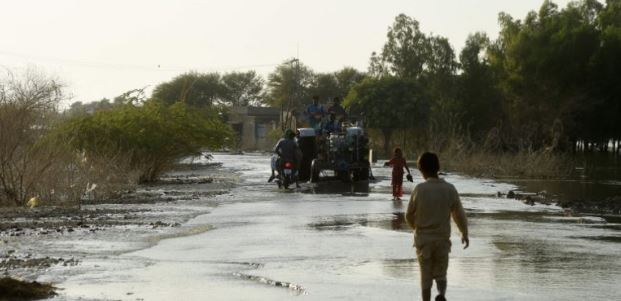U.S. announces additional $30M in aid for flood victims in Pakistan

WASHINGTON: The U.S. has announced an additional $30 million in aid for the victims of recent floods that displaced hundreds of thousands of people across the country.
The aid was announced by U.S. Ambassador to Pakistan Donald Blome during his visit to flood-hit areas in southern Sindh province, the hardest-hit region, the Prime Minister’s Office said on Friday.
Washington’s total assistance to Pakistan for flood response, food security, disaster preparedness, and capacity-building efforts now stands at $97 million.
The new funding will expand efforts to address immediate needs, scaling up assistance to the most affected communities and enabling the United States Agency for International Development to reach more than 4 million people, said a U.S. Embassy statement.
“The United States is deeply saddened by the devastating loss of life and livelihoods throughout Pakistan. We stand with the people of Pakistan during this difficult time,” the statement added.
Meanwhile, Prime Minister Shehbaz Sharif thanked Washington for the latest “humanitarian assistance,” noting that the challenges of food, health, and shelter remain as winter approaches.
In a tweet, he urged the international community to “promptly” contribute to a UN aid appeal for $816 million to help mitigate the devastation caused by massive floods.
Ravaging floods, following torrential downpours inundated a third of Pakistan, aside from killing over 1,700 people since mid-June.
They have also caused over $30 billion in losses to the country’s already struggling economy, mainly in housing, infrastructure, and agriculture.
Related News

Aurangzeb chairs meeting on regional energy situation
ISLAMABAD, MAR 4 /DNA/ – The Committee to Monitor Petrol Prices in the Wake ofRead More

OGRA assures public of adequate fuel stocks, warns against hoarding
ISLAMABAD, MAR 4 /DNA/ – In a bid to ensure the continuous supply of petroleumRead More


Comments are Closed